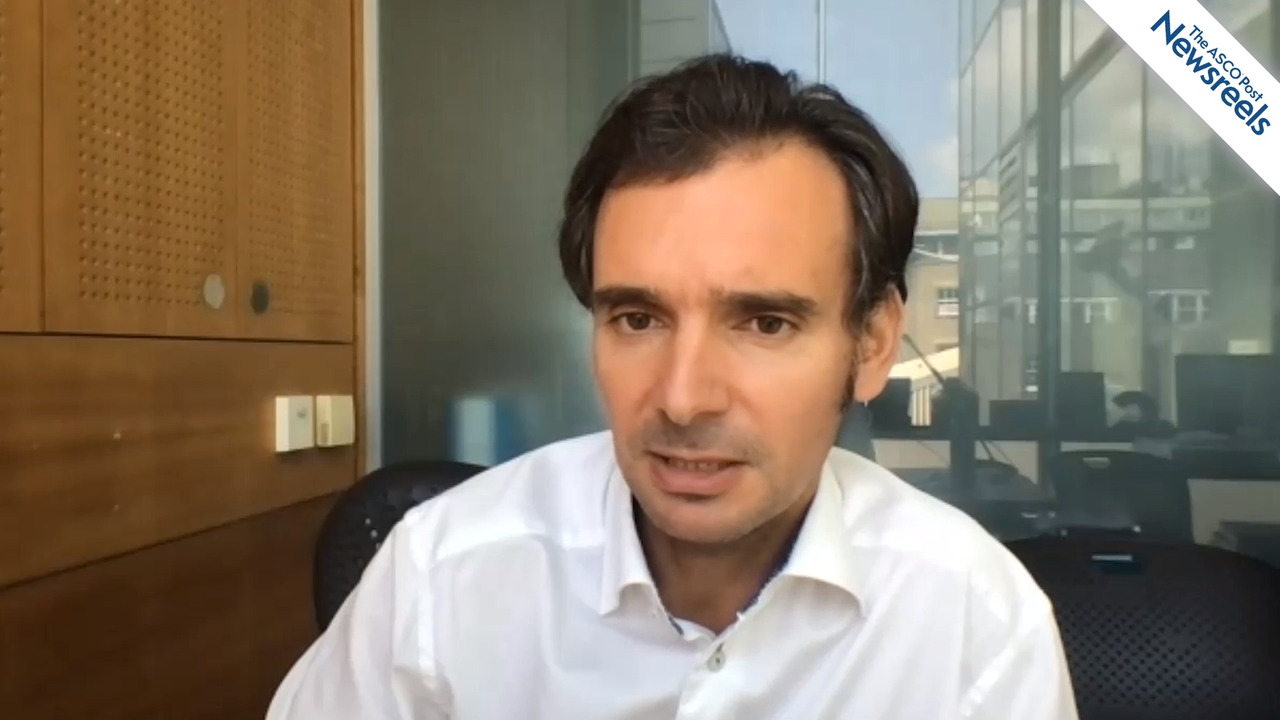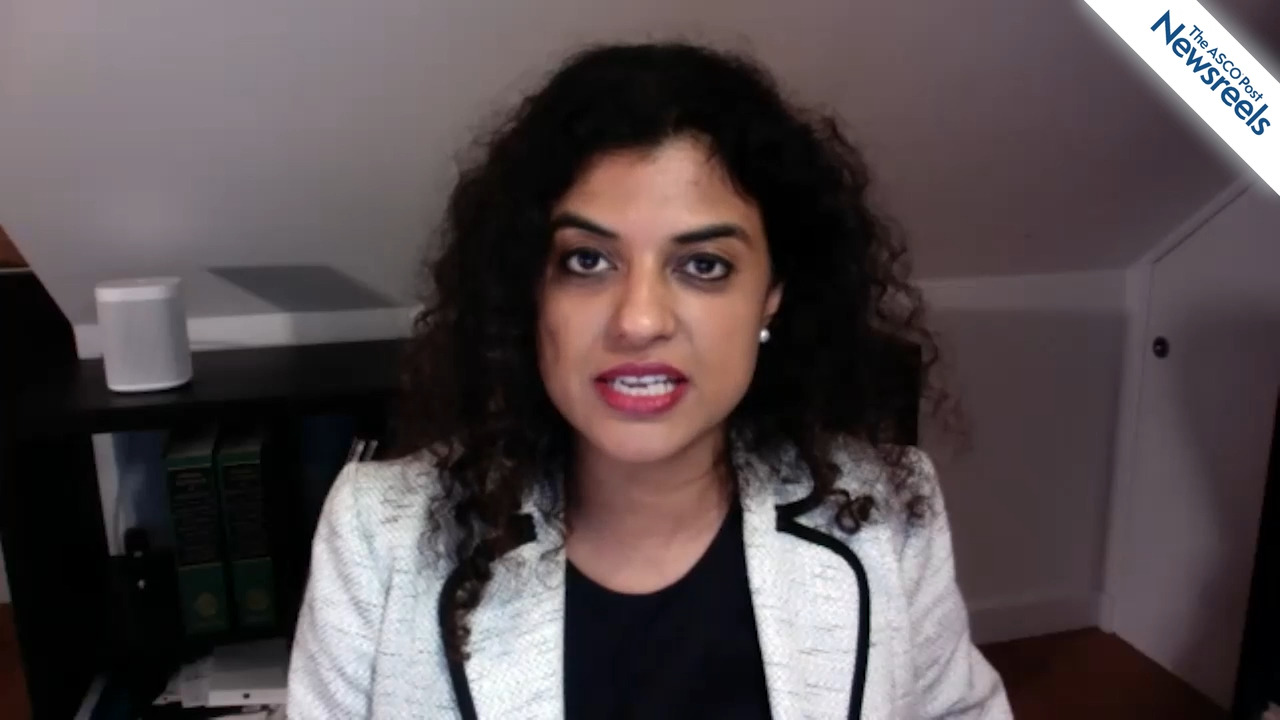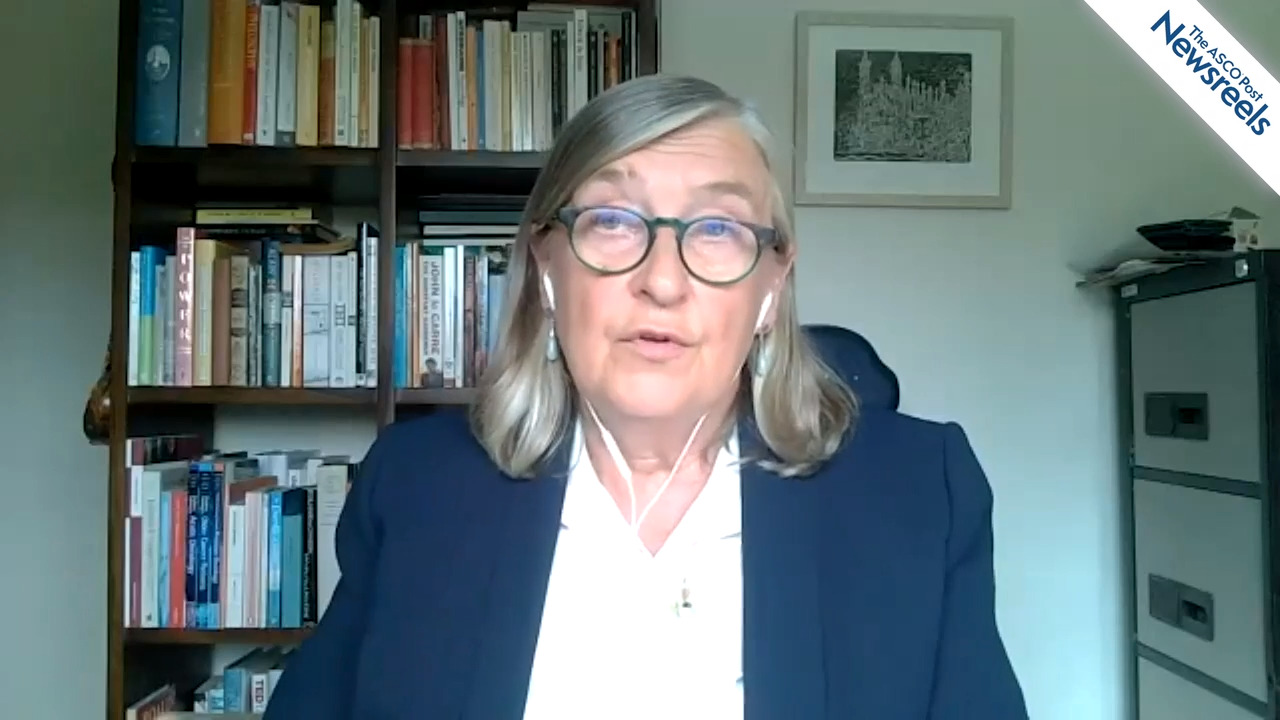Thomas Powles, MD, PhD, on Urothelial Carcinoma: Erdafitinib, Cetrelimab, and FGFR Alterations
ESMO Congress 2021
Thomas Powles, MD, PhD, of Queen Mary University of London, discusses phase II results from the NORSE study, which showed that the kinase inhibitor erdafitinib plus the monoclonal antibody cetrelimab produced meaningful responses in cisplatin-ineligible patients with first-line metastatic or locally advanced urothelial carcinoma and fibroblast growth factor receptor (FGFR) alterations (Abstract LBA27).
The ASCO Post Staff
Gerhardt Attard, MD, PhD, of The Royal Marsden NHS Foundation Trust, discusses findings that show 2 years of abiraterone acetate plus prednisolone-based treatment improves metastasis-free and overall survival in men with high-risk nonmetastatic prostate cancer. The data suggest this combination regimen might be considered a new standard of care (Abstract LBA4).
The ASCO Post Staff
Robin Cornelissen, MD, PhD, of Erasmus University in Rotterdam, discusses phase II findings from the ZENITH20-4 study, which explored the question of whether poziotinib could benefit patients whose newly diagnosed non–small cell lung cancer harbors EGFR and HER2 exon 20 mutations. Potentially, this novel tyrosine kinase inhibitor may fill an unmet medical need (Abstract LBA46).
The ASCO Post Staff
Susana N. Banerjee, MBBS, PhD, of The Royal Marsden NHS Foundation Trust, discusses phase I results that have generated interest in the combination of the RAF/MEK inhibitor VS-6766 and the FAK inhibitor defactinib for patients with recurrent low-grade serous ovarian cancer, a disease that typically has limited response to conventional chemotherapy and hormonal therapy. The data support ongoing investigation (Abstract 725MO).
The ASCO Post Staff
Helena M. Earl, MBBS, PhD, of the University of Cambridge, discusses an individual patient data meta-analysis of noninferiority randomized clinical trials to determine whether a duration of less than the standard of 12 months of adjuvant trastuzumab is noninferior for treatment outcomes in patients with HER2-positive early breast cancer (Abstract LBA11).
The ASCO Post Staff
Jenny F. Seligmann, MBChB, PhD, of the University of Leeds, discusses phase II findings that suggest adavosertib improved progression-free survival, compared with active monitoring, by inhibiting the WEE1 kinase in patients with RAS- and TP53-mutant metastatic colorectal cancer. In the trial, adavosertib’s activity tended to be even greater in left-sided tumors (Abstract 382O).





